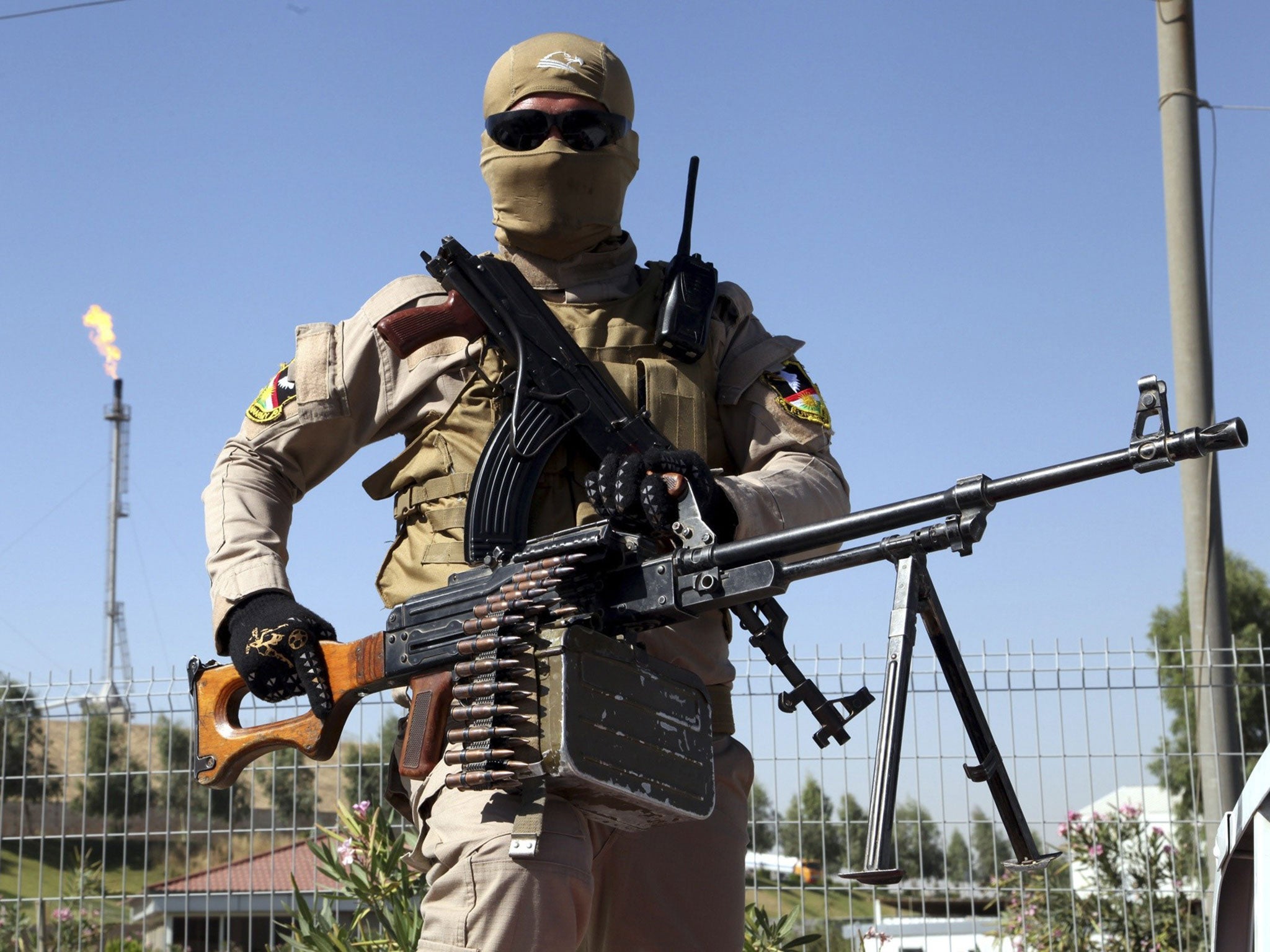Isis doesn't just threaten Iraq or Syria, but the entire Western world
We must be prepared for the worst when foreign fighters return home, while keeping a close eye on wider global terror networks

Your support helps us to tell the story
From reproductive rights to climate change to Big Tech, The Independent is on the ground when the story is developing. Whether it's investigating the financials of Elon Musk's pro-Trump PAC or producing our latest documentary, 'The A Word', which shines a light on the American women fighting for reproductive rights, we know how important it is to parse out the facts from the messaging.
At such a critical moment in US history, we need reporters on the ground. Your donation allows us to keep sending journalists to speak to both sides of the story.
The Independent is trusted by Americans across the entire political spectrum. And unlike many other quality news outlets, we choose not to lock Americans out of our reporting and analysis with paywalls. We believe quality journalism should be available to everyone, paid for by those who can afford it.
Your support makes all the difference.US President Barack Obama said on Friday that he was “deeply concerned” about the threat posed from foreign jihadists returning to their home countries from the Middle East.
This follows similar concerns expressed by other international political and military leaders, including General David Petraeus, Australian Prime Minister Tony Abbott and UK Prime Minister David Cameron.
Cameron last week specifically warned of the prospect of international terror attacks if an “extreme Islamist” regime is created in Iraq, after the recent advances of the Islamic State of Iraq and Syria (Isis).
The numbers of foreign jihadists who have already returned from the Middle East to their home countries is not certain. However, Richard Barrett, the former Head of Counter-terrorism at MI6, warned yesterday that “up to 300” foreign fighters from Syria may now be back in the United Kingdom alone.
It is unclear how many of these individuals have ties to Isis, which was created in April 2013 from one of al-Qaeda’s affiliate organisations in Iraq.
While Isis is technically an offshoot or splinter group of al-Qaeda, both sides have disavowed each other, with Isis accusing al-Qaida earlier this year of having “deviated from the correct path”, and “divided the mujahedeen in every place”.
These recent warnings from international leaders echo those of FBI Director James Comey, who warned last month about the prospect of a “future 9/11” caused by the increased flow of foreign fighters into the Middle East.
“All of us with a memory of the 1980s and 1990s saw the line drawn from Afghanistan...to September 11," he said. And because of the larger number of foreign fighters, "We see Syria as that, but an order of magnitude worse.”
While it is uncertain how many foreign fighters are in Iraq, the International Centre for the Study of Radicalisation at Kings College London estimates that as many as 11,000 foreign fighters may have fought in Syria, from more than 70 countries.
Given that the relatively large number of these jihadists makes them collectively difficult to track with precision, an increase in home-grown attacks appear increasingly likely. However, individual foreign fighters do not generally represent the same level of threat to international interests as larger, well funded terrorist cells with operational support from abroad.
The fact that foreign fighters are less likely to have operational support partially reflects the fact that, some three years on from bin Laden’s assassination, al-Qaeda’s central organisation has been significantly depleted. While bin Laden’s successor, Ayman al-Zawahri, has sought to seize upon home-grown terrorism for propaganda purposes, this cannot disguise central al-Qaeda organisation’s declining fortunes.
US and Iran need to work together fast
Iran's Khamenei condemns US 'attempts to turn conflict into sectarian war'
'Up to 450' British fighters have joined Isis militants and plan UK attack
Isis extremists plan to attack us in the UK, warns David Cameron
Zawahri lacks bin Laden’s personal authority within the network, and the core has also been weakened by the assassination of numerous other senior terrorist leaders. A fundamental challenge for him is that while the central al-Qaeda leadership appears to still remain located largely in Pakistani tribal areas and borderlands, the wider network has becoming increasingly de-centralised and harder to control.
Al-Qaida groups and franchises have also begun to focus more on ‘local’ national or regional issues, rather than the broader international designs of bin Laden. This partly reflects the greater difficulty of attacking key international targets many of whose defences have become significantly hardened since 9/11.
There has also been evolution in the al-Qaeda geographically. For instance, in key African and Middle Eastern countries, such as Yemen, political upheaval since bin-Laden’s death has allowed terrorists and other insurgents to secure greater foothold. And US forces are re-deploying as a result.
For instance, the CIA has expanded its staff in Yemen, and also enhanced its air bases in the Gulf from which it can launch drone strikes into the country. Only in April, Washington launched a major drone attack which, according to the Yemeni Government, killed at least two dozen militants, including foreign fighters, in an al-Qaeda training camp in the remote mountainous area of Abyan.
Meanwhile in Africa, US forces have also scaled up facilities in numerous states, including Kenya, Ethiopia, and the Central African Republic. This is intended to allow for greater aerial surveillance coverage and drone strikes, especially in North Africa, plus sites for military hardware storage.
However, much of the wider terrorist network remains potent. Danger to international interests appears to be growing from home-grown threats fuelled by battle-hardened, radicalised individuals returning from foreign theatres of war, especially in the Middle East, with greater terrorist resolve and capabilities. But we must not forget our old enemies either.
Join our commenting forum
Join thought-provoking conversations, follow other Independent readers and see their replies
Comments